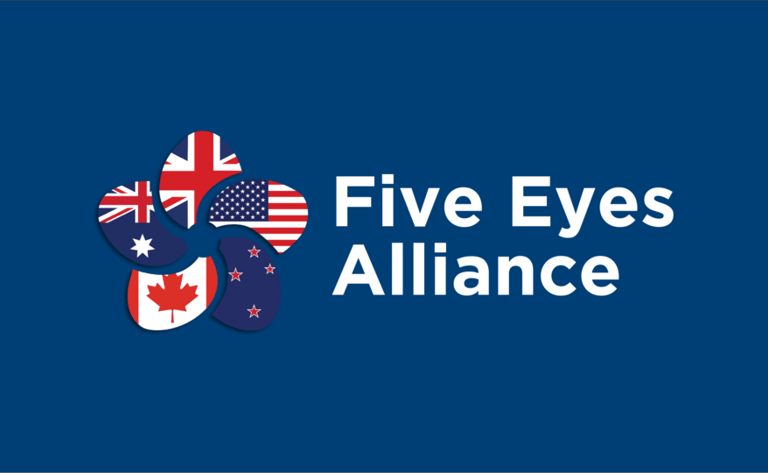Did a U.S. Ally Just Question the Legality of Trump’s Caribbean Strikes?
POLITICS


House Intelligence Democrats say a Five Eyes partner hesitated to share intelligence after Trump’s Caribbean strikes, citing concerns about the operation’s legal grounding. Even a brief pause in Five Eyes cooperation is highly unusual and signals deeper questions inside America’s closest alliance.
The concern surfaced yesterday in a new letter from senior House Intelligence Committee Democrats, who disclosed that a Five Eyes partner recently limited intelligence sharing over the legality of the strikes — a move almost never seen among the five nations that operate on near-automatic trust. The hesitation appears to stem from concerns about the legal basis of the operation, raising questions about oversight, transparency, and how the strike was authorized.
The episode has triggered a rare moment of introspection inside Washington, where lawmakers are now trying to determine why an ally flagged legal issues before Congress received a full briefing. For an alliance built on seamless cooperation, the implications are significant.
A Rare Disruption in a High-Trust Alliance
The Five Eyes — the U.S., U.K., Canada, Australia, and New Zealand — share intelligence with a level of speed and depth unmatched anywhere in the world. Any slowdown in that flow is extraordinary. A limitation tied to concerns about lawful use of force is even more unusual.
These governments operate under strict legal frameworks that prohibit contributing intelligence to operations that may fall outside international or domestic law. If an ally believed the Caribbean strikes lacked clear legal grounding, they were obligated to pause cooperation until the situation was clarified.
Such hesitation is an early signal that the strike raised more questions abroad than at home.
Congress Wasn’t Fully Briefed — but an Ally Reacted First
The concern surfaced in a letter from senior House Intelligence Committee Democrats, who said they learned of the restriction only after the ally communicated its discomfort. The lawmakers’ message implied that Congress itself had not been given full insight into the legal justification before the partner nation raised red flags.
That sequence — an ally expressing doubt before U.S. oversight bodies were fully informed — suggests a gap in communication inside the American national-security system. It raises the question: why were concerns abroad showing up before clarity existed in Washington?
Legal Concerns Created a Ripple Effect
The reported pause wasn’t a permanent break, but even a brief interruption in Five Eyes intelligence sharing has consequences. It can delay targeting analysis, complicate threat assessments, and disrupt joint operations. For a network that relies on real-time cooperation, a hesitation signals that something in the legal or procedural chain was unclear enough to trigger caution.
Legal ambiguity can be more destabilizing than operational risk. When partners fear being pulled into an action that may fall into a gray area, they err on the side of disengagement.
The Intelligence Community Has Stayed Quiet
Director of National Intelligence Tulsi Gabbard has not publicly responded to the concerns, and none of the Five Eyes governments have confirmed the reported restriction. Silence is typical in intelligence matters, but in this case it leaves a vacuum that invites speculation about what exactly prompted the hesitation.
If the partner acted out of an abundance of caution, the issue may fade quickly. But if the pause resulted from deeper doubts about the operation’s legal foundation, the event could signal a larger rift — one that only becomes visible when allies stop assuming the U.S. is on solid ground.
What This Means Going Forward
The Caribbean strike is no longer just a military story. It is now a test of transparency, oversight, and alliance trust. When a U.S. partner pulls back even briefly, it suggests uncertainty in a system that depends on clarity. And when Congress learns of legal concerns from an ally instead of the intelligence community, the imbalance becomes even sharper.
Trump’s operation may ultimately be judged lawful, questionable, or somewhere in between. But the mere fact that a Five Eyes ally reacted first raises a deeper question: what happens when America’s closest partners hesitate because they aren’t sure the legal lines were followed?
Although the reports do not indicate which ally hesitated, it’s worth noting that four of the Five Eyes partners — the U.K., Canada, Australia, and New Zealand — all share the same monarch as head of state, a constitutional link that gives the alliance a uniquely aligned foundation even as each government remains fully sovereign.
For an alliance built on trust, even a moment of doubt is enough to signal trouble.
